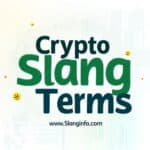Hey there, language explorers! Ever caught yourself wondering what someone means when they say they’re “finna” do something? Well, you’re in the right place! This fascinating word has deep roots in American culture and has become a staple in modern communication. Let’s break it down together! 📚
| Key Takeaways |
|---|
| 1. “Finna” means “going to” or “about to” |
| 2. Originated from AAVE and Southern American English |
| 3. Derived from the phrase “fixing to” |
| 4. Commonly used in casual conversation and social media |

What Does Finna Mean? 🤔
Simply put, “finna” means “going to” or “about to.” It’s like when you’re just about to do something – you’re “finna” do it. Think of it as the cool cousin of “gonna” or “about to.”
Here’s how it works in real life:
- “I’m finna head to the store” = “I’m about to go to the store”
- “She finna win this competition” = “She’s going to win this competition”
- “We finna eat” = “We’re about to eat”
Origins and Evolution 📚
Now, here’s where things get interesting! “Finna” didn’t just pop up out of nowhere – it’s got some serious history behind it. The word comes from the phrase “fixing to,” which has been used in Southern American English for generations.
The evolution went something like this:
- “Fixing to” (original phrase)
- “Fixin’ to” (casual pronunciation)
- “Finna” (modern form)
It’s like watching language play telephone across generations! The term has especially strong roots in African American Vernacular English (AAVE), where it’s been a staple of everyday speech for many years.
How to Use Finna 💬

Using “finna” correctly is all about context and timing. Here’s a quick guide:
Good times to use “finna”:
- Casual conversations with friends
- Social media posts
- Text messages
- Informal writing
When to avoid “finna”:
- Job interviews
- Academic papers
- Formal emails
- Professional presentations
Here are some examples of “finna” in action:
- Correct: “I’m finna start my homework”
- Also correct: “The party finna be lit!”
- Not quite right: “The president finna sign the treaty” (too formal a context)
Think of “finna” as your casual, everyday sneakers – perfect for hanging out with friends, but maybe not for a black-tie event! 👟
Finna vs. Other Similar Terms 🔄
Let’s compare “finna” with its linguistic cousins:
| Term | Meaning | Usage Example |
|---|---|---|
| Finna | About to | “I’m finna eat” |
| Gonna | Going to | “I’m gonna eat” |
| About to | About to | “I’m about to eat” |
| Fixing to | Going to | “I’m fixing to eat” |
Each has its own flavor and feel, but they all point to something that’s about to happen. It’s like having different outfits for the same party – they all work, but each brings its own style!
Remember, “finna” isn’t just another way to say “going to” – it carries its own cultural weight and history. When you use it, you’re tapping into a rich tradition of American language evolution.
Cultural Context and Sensitivity 🌍
Alright, let’s talk about something important. While “finna” has become super popular across social media and in everyday speech, it’s crucial to understand and respect its cultural roots. This isn’t just any old slang term – it’s a part of African American language and culture that deserves recognition.
Think of language like a family tree. Just as you wouldn’t claim your friend’s family history as your own, it’s important to use terms like “finna” with awareness and respect. It’s totally fine to use it naturally in your speech if it’s part of your community or dialect, but using it to mock or appropriate culture? That’s a big no-no.
Here’s how to be respectful when using “finna”:
- Understand its origins: Know where it comes from and appreciate its history
- Use it naturally: Don’t force it if it’s not part of your normal speech
- Avoid stereotyping: Don’t use it to imitate or make fun of others
- Be mindful of context: Consider when and where it’s appropriate
Finna in Popular Culture 🎵
“Finna” has made its mark on popular culture in a major way. You’ll hear it in:
- Music: Especially in hip-hop and R&B lyrics
- Social Media: All over Twitter, TikTok, and Instagram
- Movies and TV: In dialogue that aims to capture authentic speech
- Memes: As part of internet culture and humor
Here’s a cool fact: some of the biggest hits in recent years have featured “finna” in their lyrics. It’s like the word has become a bridge between different cultures and communities through music and media.
The Future of Finna 🔮
Language is always evolving, and “finna” is no exception. While some slang terms come and go faster than a TikTok trend, “finna” has shown staying power. Why? Because it’s:
- Useful: It fills a specific need in casual speech
- Authentic: It comes from genuine language use
- Versatile: It works in many different situations
- Expressive: It adds flavor to everyday communication
Tips for Using Finna 💡
Want to use “finna” in your everyday speech? Here are some pro tips:
- Keep it casual: Use it in informal situations
- Stay authentic: Don’t force it if it doesn’t feel natural
- Read the room: Consider your audience
- Mix it up: Don’t overuse it
Conclusion
So there you have it – everything you need to know about “finna”! Whether you’re just learning about it or you’ve been using it for years, understanding its meaning, history, and proper usage can help you communicate better and more respectfully.
Remember, language is a powerful tool for connection, but it’s also a reflection of culture and identity. Use it wisely, use it respectfully, and most importantly, use it authentically!
FAQs ❓
Q: Is “finna” proper English?
A: While it’s not standard English, it’s a legitimate dialect term with a rich history in AAVE and Southern American English.
Q: Can anyone use “finna”?
A: While the term has become widespread, it’s important to use it respectfully and authentically, not as a way to mock or appropriate culture.
Q: Will using “finna” make me sound unprofessional?
A: Like any casual language, “finna” is best saved for informal situations. Use standard English in professional contexts.
Q: How old is the word “finna”?
A: The term has been around for generations, evolving from “fixing to” in Southern American English.
Q: Is “finna” the same as “gonna”?
A: While they’re similar in meaning, “finna” specifically implies something that’s about to happen very soon.
Remember, using slang like “finna” is all about balance and respect. It’s not just about knowing what a word means – it’s about understanding its cultural significance and using it appropriately. Now you’re finna be an expert on this fascinating piece of American language!
Slang Cheat Sheet:

